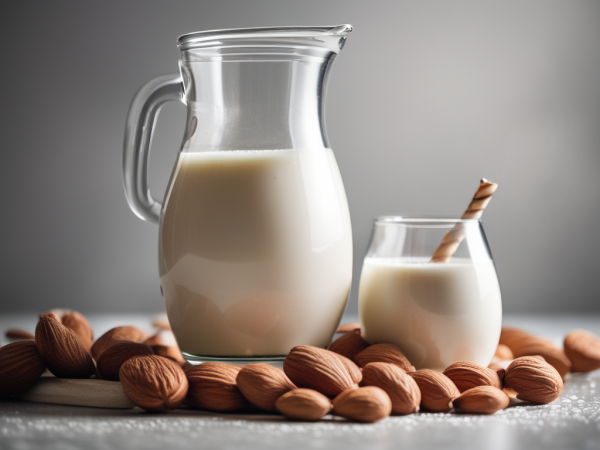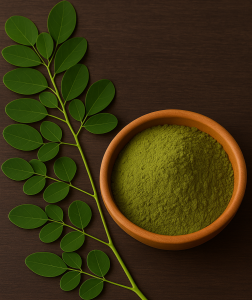How to Make the Ultimate Almond Milk Recipe for Fresh & Healthy Dairy-Free Milk

Almond milk has gained popularity as a dairy-free alternative to traditional milk. This almond milk recipe allows you to create fresh, nutritious almond milk while controlling the ingredients and flavor. Follow this simple guide to making almond milk, its benefits, and expert tips for the best results.
Benefits of Almond Milk
Why Choose This Homemade Almond Milk Recipe?
1. Nutrient-Rich
Almond milk contains vitamins and minerals such as vitamin E, calcium, and magnesium. Many store-bought versions are fortified to enhance nutritional value.
2. Low in Calories
This almond milk recipe produces a lower-calorie option compared to whole milk, making it ideal for weight management.
3. Dairy-Free & Lactose-Free
For those with dairy allergies or lactose intolerance, almond milk is an excellent substitute for cow’s milk.
4. Heart-Healthy
Almonds are packed with heart-healthy fats, which can help lower bad cholesterol levels and support cardiovascular health.
5. Supports Bone Health
When fortified, almond milk provides calcium and vitamin D, essential for strong bones.
6. Rich in Antioxidants
Vitamin E in almonds helps protect the body from oxidative stress and inflammation.
7. Versatile Ingredient
This homemade almond milk recipe can be used in smoothies, coffee, cereal, and even baking.
Ingredients for Homemade Almond Milk
- 1 cup raw almonds
- 4 cups water (plus extra for soaking)
- Sweetener (optional): Maple syrup, honey, or dates
- Flavoring (optional): Vanilla extract or a pinch of salt
Equipment Needed
- Blender – A high-speed blender ensures a smooth consistency.
- Nut milk bag or cheesecloth – For straining the milk.
- Large bowl – To soak the almonds and collect the strained milk.
- Airtight container – For storing the almond milk.
Step-by-Step Almond Milk Recipe
1. Soak the Almonds
- Place 1 cup of raw almonds in a large bowl.
- Cover with water and let soak overnight (or at least 8 hours) for a creamier texture.
2. Drain and Rinse
- Drain the soaked almonds using a colander.
- Rinse them thoroughly with cool running water.
3. Blend the Almonds
- Add the soaked almonds and 4 cups of fresh water to a blender.
- Blend on high for 2-3 minutes until the mixture becomes smooth and frothy.
4. Strain the Almond Milk
- Place a nut milk bag or cheesecloth over a large bowl.
- Pour the blended mixture through the strainer.
- Squeeze out as much liquid as possible, leaving behind the almond pulp.
5. Sweeten & Flavor (Optional)
- Add sweeteners like maple syrup, honey, or dates.
- Enhance flavor with a splash of vanilla extract or a pinch of salt.
- Blend again to mix.
6. Store the Almond Milk
- Pour the milk into an airtight container.
- Refrigerate for up to 4-5 days.
- Shake well before use, as separation is natural.
Tips for the Best Almond Milk Recipe
Use Fresh Almonds
Always use raw, unsalted almonds for the best taste and texture.
Adjust Blending Time
Blend thoroughly for a smooth consistency.
Strain Twice for Extra Smoothness
For an ultra-creamy result, strain the almond milk twice.
Experiment with Flavors
Try adding cinnamon, cocoa powder, or fruit extracts for unique flavors.
Save the Almond Pulp
Use leftover pulp in smoothies, baking, or granola recipes.
Nutritional Comparison: Almond Milk vs. Cow’s Milk
| Nutrient | Almond Milk (1 cup) | Cow’s Milk (1 cup) |
|---|---|---|
| Calories | 30-60 | 150 |
| Protein | 1g | 8g |
| Fat | 2.5-3g | 8g |
| Carbs | 1-2g | 12g |
| Calcium | 450mg (fortified) | 300mg |
| Vitamin D | 100 IU (fortified) | 100 IU |
Common Questions About Almond Milk Recipe
Can I make almond milk without a blender?
A high-speed blender is ideal, but a regular blender can work. A food processor may also be an alternative.
How can I use leftover almond pulp?
Almond pulp can be used in baking, smoothies, or even mixed into oatmeal and yogurt.
Can I freeze homemade almond milk?
Yes! Store in an airtight container, leaving space for expansion. Thaw in the refrigerator and shake well before using.
Is homemade almond milk better than store-bought?
Homemade almond milk is free from additives and preservatives, offering a fresher and customizable alternative.
External Resources
- 9 Evidence-Based Health Benefits of Almonds – Healthline
- Almonds: Health benefits, nutrition, and risks – Medical News Today
Conclusion
This almond milk recipe makes it easy to create a fresh, dairy-free milk alternative at home. With just a few ingredients and simple steps, you can enjoy a nutrient-rich, heart-healthy beverage tailored to your taste. Try experimenting with different flavors and enjoy the versatility of homemade almond milk in your daily diet!




